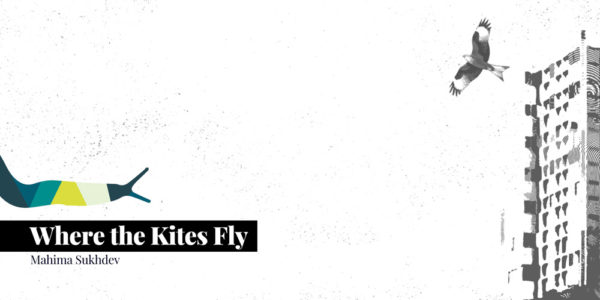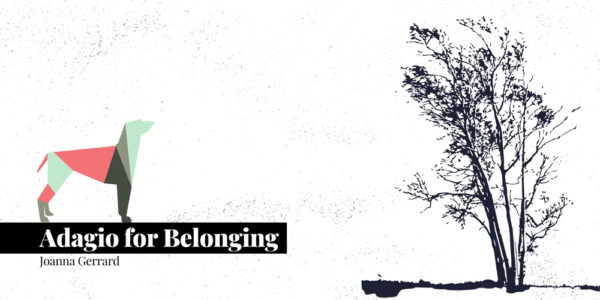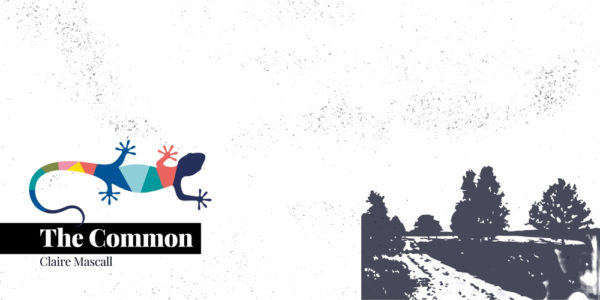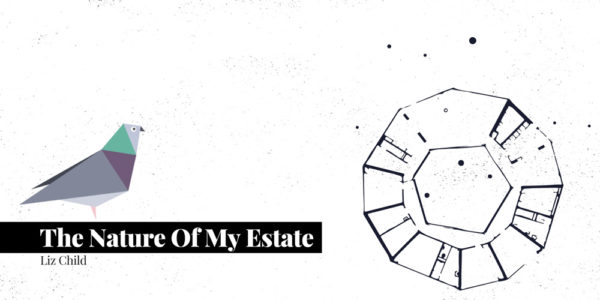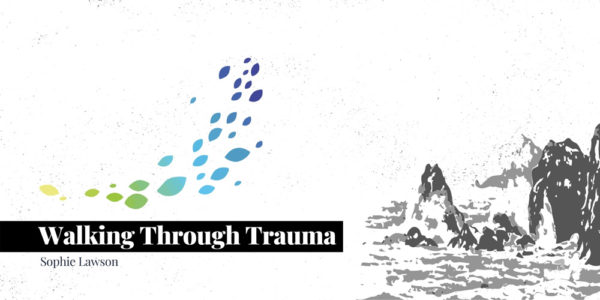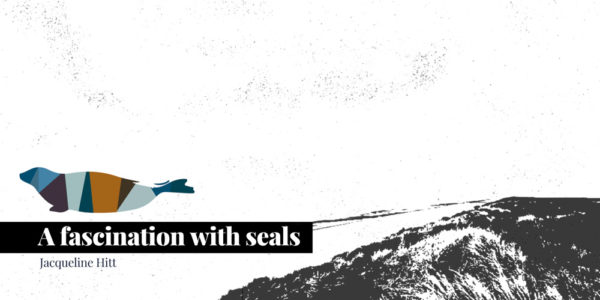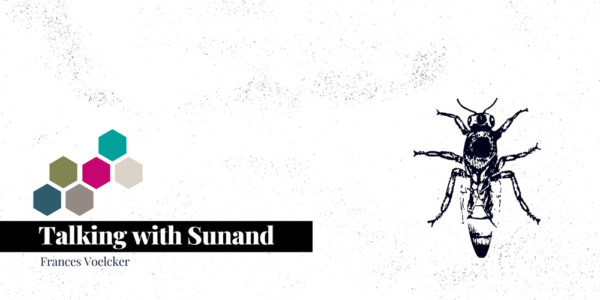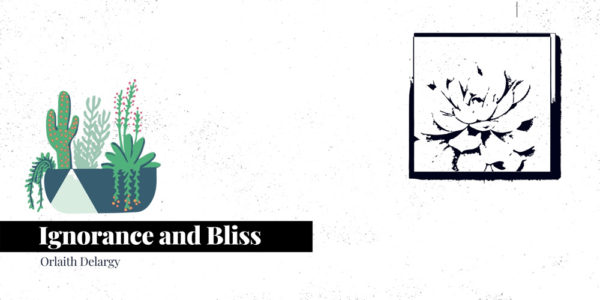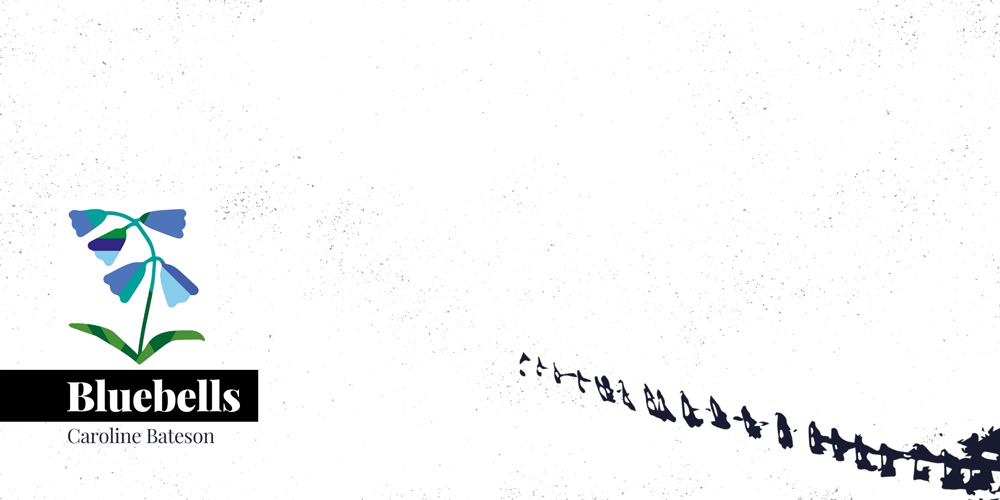
I am at one with nature—to the extent that I feel damaged when nature is destroyed, as if we were one body.
I grew up in a tiny, exposed hilltop hamlet called Halse, at the southern tip of Northamptonshire. I had a rustic childhood—living with my mum and younger sister on the edge of our hamlet. I bonded with nature as a child through constantly playing out in the countryside which surrounded us like an extended garden. I remember when I first noticed bluebells.
It was a typical weekend (May 1978) and I awoke with that lovely feeling of relief from the school routine a Saturday morning brought. My sister Lizzie and I sat lazily in our beds until the sunbeams and the warm blue sky compelled us to get up. After breakfast, we sped down on our bikes to our friend’s farm; past the row of biscuit-coloured council houses, past the farm cottages on the corner and down the tree-lined lane to Halse Grange farm.
We opened the wrought iron gate into the front garden and heard the cows bellow and rattle the metal gates in the adjacent farm-yard. We tried to peer into the playroom as we passed the window, but in the bright sunshine couldn’t see if our friends were inside. The mustard-yellow back door was open but we felt too shy to go straight in, so we rapped on the brassy fox-head knocker. No one heard us as we loitered, embarrassed.
Suddenly there was a bluster of dogs and footsteps, and the farmer, our friend’s dad (we called him Uncle Donald), arrived through the back gate with his two black and white sheepdogs Carlo and Rex. The dogs ran up to us, tails wagging, while Uncle Donald rescued us from the doorstep.
‘I don’t know where those tinkets are by golly, all still in bed I shouldn’t wonder,’ he grumbled mildly. ‘Sarah!’ he bellowed into the house, ‘where are you? Caro and Lizzie are here.’
‘Hiya, we’re down in the playroom,’ I heard Sarah, (my friend and the eldest sister) call from down the long corridor. We went in reluctantly, not wanting to be inside on this beautiful morning.
We sat down on the squashy, golden armchairs in front of Swap Shop. The room was sunlit and an unnecessary log fire burnt in the new wood-burner. I felt suffocated by the warmth and morning TV and desperately wanted to go outside. I had almost resigned myself to being stuck indoors all morning, when Sarah, Jane and Wendy’s mum bustled in (we called her Auntie Beti).
‘Now darlins, I have to do the church flowers tomorrow, so I want you to go up to the copse and get some bluebells for the flower arrangements.’
‘Ow mum, do we have to?’ mumbled Jane, who was curled up on the floor in a square of sunshine, somnolent from warmth and inactivity. It was always a challenge to extricate her from cosy places.
‘Yes, yes, the bluebells will be just right for picking now, go on with you.’ Auntie Beti insisted. Beti came from a farm in mid-Wales and her Welsh-ness was evident in the lilt of her voice. I jumped up gratefully—it was such a relief to get outside.
We all scrambled over the first farm gate then had to stop and open it to let Carlo the elderly sheep dog through. Rex, the younger sheepdog had already slithered between the bars in the gate at top speed. We passed Halse water tower, ugly and sinister-looking. We passed the murky old pond we had skated on in winter-time.
We set off across the second field, delighting in the space and sunshine as we ran exuberantly up and down the wave-like undulations of the medieval ridge and furrow system. The dark green grass was bright with buttercups and the sun grew hot.
‘This field is called the ‘Dairy Ground,’ informed Sarah, who knew all the old field names from going out shepherding with her dad. ‘They used to keep the dairy cows up here because the ground was too wet and rough to grow wheat.’ She added.
We crossed the last field towards Halse copse and found the barely discernible gateway between the trees. The wooden gate was wedged in among the long grass tussocks. We heaved the gate open and entered into a completely different world. The tangled greenery brushed our legs as we stood in the shade cast by the towering oaks and ashes, just coming into leaf. The air was cool and damp, with tangy freshness. We walked along the shady ride bordered by deep ditches.
‘Where are the bluebells then?’ Asked Jane.
‘Down this ride and turn to the right, I remember seeing lots there when I came with dad,’ replied Sarah. We all charged off to be the first to find them. I spotted a blue shimmer between the trees.
‘Over there!’ I called to Sarah. We raced across towards them, tripping on roots and dips and brambles. Soon we were all bending down picking.
‘Make sure you pick them at the bottom of the stalk for the flower arrangements,’ instructed Sarah.
‘Be careful not to pull the roots up so they grow again next year,’ I added as the sound of juicy popping stalks accompanied our busy picking.
‘Eeycuk’ said Wendy, ‘my fingers are all sticky with bluebell juice.’
‘Me too’ replied Lizzie.
‘Hey look at these!’ Jane called, ‘I’ve found some pink ones and look, there’s a white one!’ We all ran across to her, trying not to trample the bluebells underfoot.
‘Wow, these are amazing!’ I said, admiring the delicate colours of the flowers’ bells. ‘Look these ones next to it are all different shades of mauve and pink!’
‘I don’t think we should pick these ones,’ said Sarah. We all agreed, they seemed sacred and special. We looked again and left them growing.
Soon we had armfuls of bluebells and we were starting to lose interest. We collected the flowers and set off back to the main path. I turned around to take a last look at the swathes of bluebells which bathed the trees’ feet in a mist-like shimmer. We struggled back through the wooden gate, leaving the woods to their own slow growing and ancient silence.
Back at the farm, we put the flowers on the kitchen table and set off home for lunch.
‘Wait, wait a minute, Caro and Lizzie,’ Sarah called after us. ‘Mum wants you to take some bunches for your mum and your house.’ Sarah handed us big bundles of bluebells, still bleeding juice from their stems. We plodded home, smelling the elusive fragrance as we went. We walked into our sunny kitchen to find gran had come over to visit. She was sitting in her usual armchair wearing her old purple coat and head scarf. We went over to hug her and give her a bunch of bluebells to sniff.
My gran provided the solid comfort of my childhood; with her big round knees, wide lap and soft arms. She was always at home and often looked after us, while our mum (an opera singer), travelled away to teach and sing.
Gran was born in 1908 in the nearby village of Woodford Halse (a place transformed by the coming of the Great Central Railway in Victorian times). She spent her entire life in Northamptonshire, only moving five miles to Thorpe Mandeville when she got married. She loved to tell us vivid stories about ‘the olden days’ in a way which made me wish I had lived in those times.
She brought her own country childhood to life, telling us of riding from village to village in the baker’s cart delivering bread, about hay-making and the fun she had with her three brothers and many cousins who lived in the villages scattered about the countryside. I felt deeply rooted by the generations of family that had farmed and lived in Northamptonshire for hundreds of years.
As children we went back to Halse copse to pick bluebells every May and each year my bond to the place deepened. I assumed it would always be there, the dappled light and the beautiful shimmery sheen of bluebells filling the woods. We took for granted our freedom to wander unrestricted and explore wherever we pleased.
As I grew older, playing out was replaced by walking. I found home and school life difficult and the countryside became a place of solace. I had special places that I walked to time and time again, in all seasons. These places made me feel rooted in the earth. I always needed to come back and see them, even after I had left home. I still need these places now.
My home countryside around Halse remained the same, while nearby the M40 cut a huge swathe through the Cherwell Valley. However, it wasn’t until the beautiful duck-pond we used to play in adjacent gran’s garden was bulldozed for a big, new house that I witnessed the direct impact of capitalism on a place I loved.
The loss of the duck-pond upset gran deeply and she was diagnosed with cancer just as the building work began. She particularly mourned for the swallows which would return for the summer, expecting to dip and feed on insects over the duck-pond, but instead found a red-brick house there.
After battling for many years, gran finally died, just at the beginning of May, when all the birds, blossoms and flowers were bursting into their full delight. She was buried next to grandad in Thorpe Mandeville churchyard, overlooking the gentle fields and hedges which rolled like green dumplings towards the village she had originated from.
When I came back for the funeral, I went to stay in my childhood home in Halse. I needed the comfort of the fields and familiar places I had known so intimately. I awoke at dawn the morning of the funeral with a stony feeling of loss inside me.
I could see a cold pink dawn through a gap in the curtains so I drank tea, dressed and went out, knowing just where I needed to go. It was so early that everyone else was asleep. Outside, the lark song was already in full cacophony over the growth of green new wheat as I strode out towards Halse copse. I walked and walked, to try and walk away the pain of loss. I walked across the wet grass of the familiar sheep field and climbed the high gate in the corner.
I walked close to the hedge to keep away from the cows. The buttercups were sleeping and wet with dew. The hedges were partly bare, partly green and an icy wind blew, making me cold inside and out, despite the rising sun. I thought of Uncle Donald who always used to say;
‘Ne’r shed a clout, till May is out.’
The cows stared at me in surprise with their breath hot and steaming as I walked past, through cold air and sunshine. It was peaceful, with the sound of a cuckoo blowing in on the breeze. Halse copse was getting closer, enticing me. I walked across the Dairy Ground, sparkling with golden buttercups, now waking in the warming sunshine. My heart felt just a bit less ice-ridden, eased by the motion of walking through this landscape which embraced me with such deep familiarity.
The sunny, sheltered edge of the copse was bright green with hawthorn leaves, known locally as ‘bread and cheese.’ I ate some, relishing the green taste, and went into the woods.
There I found bluebells, my heart’s desire. Lakes of them—still and shimmering, just how I remembered them. I revisited all the places I knew from childhood and found the special pink, mauve and white bluebells we got so excited about. They were wet, cold and icy with the night’s dew. Their fat, juicy stems popped and dribbled when I accidentally trod on some and broke them. I wandered about, imbibing their colour and fragrance. Shafts of sunlight came in through the mostly-bare trees before the canopy closed and there would be no more light for flowers like this.
I meandered from place to place, drawn to the intense patches of blue-purple and absorbed the pungent hyacinth scent which pervaded the air. I savoured every moment among the ephemeral ancient woodland flowers. I felt so comforted by their presence and the knowledge that it was just the same as when we came as children. After hours of undisturbed immersion among the bluebells, I felt peaceful. My sadness and grief were soothed just by being there.
Finally I stood with my back against a tree, warm in a shaft of sunshine and gazed one last time. I knew that I loved this place and that it was precious. It reassured me to know it would always be here to come back to, even though people I loved would die. I thanked this place and its reliable feeling of permanence and walked home.
It is now 2020 and capitalism in the form of HS2 is set to smash through this land. This corner of Halse copse, where we entered the woods by the little wooden gate, will be sliced by HS2. The buttercup-filled Dairy Ground will be underneath shiny rail-tracks and fast moving trains. We will no longer be able to cross the fields to reach what remains of the woods.
HS2 will also cross through the bottom of the valley in Lower Thorpe, just below Thorpe Mandeville church where gran and grandad are buried. This view will be urbanised and you will hear the sound of high–speed trains passing every three minutes.
If you look at Northamptonshire on a road map, the county already looks shackled and chained by roads. The largest remaining unspoilt area between the M1 and the M40 will be severed through the middle by HS2.
The noise and scale of the construction process doesn’t bear contemplating. The special pink, mauve and white bluebells will be crushed and buried. This ancient woodland site will be bulldozed. The hedges Uncle Donald carefully laid; weaving the tops in the old Northamptonshire tradition will be demolished. The up and down pastures we raced across, the remnants of the old medieval three-field system, will be obliterated.
The loss of precious places like these cannot be mitigated and the capitalism that HS2 embodies is like a destructive cancerous growth.
Shortly after the plans for HS2 were announced, I was diagnosed with a rare cancer. I am an environmental indicator and my body became the scene of an environmental disaster. My cancer treatment involved major surgery and chemotherapy. Before surgery my body was soft and beautiful like the Northamptonshire countryside. Now it has a damaged landscape. Along the entire length of my abdomen is a long red scar—straight and ruthless like HS2. The countryside and I are casualties of capitalism.
. . .
About the author
Caroline Bateson is in all ways passionate about wildlife and the countryside. Experiencing nature closely inspires wonder in her and the more she learns about the intricacies of the natural world the more awed she feels. It concerns her deeply that we are destroying the earth in so many ways and ultimately ourselves. Nature and landscapes inspire her writing and she writes in an attempt to share the wonder and stop the loss.

